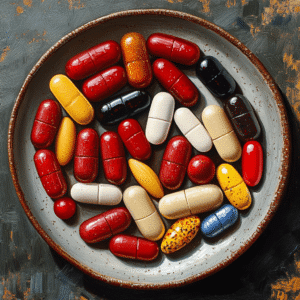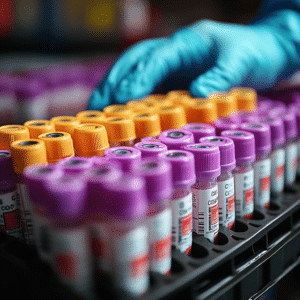Depressive disorder is a pervasive condition affecting millions, transcending mere sadness. It’s a complex mental health issue that impacts daily living intertwined with various other disorders, including social anxiety disorder and attention deficit disorder. Understanding depressive disorder’s nuances is crucial, especially for parents grappling with their children’s addiction rooted in mental health struggles. This community, including organizations like Mothers Against, provides vital support for parents enduring the heart-wrenching journey of addiction and loss.
Recognizing this condition involves more than identifying symptoms; it requires an empathy-led discourse that embraces the personal stories behind the statistics. Research shows that about 21 million adults in the United States experience at least one major depressive episode each year (American Psychological Association). When discussing depressive disorder, we uncover not just psychological pain, but the cascading effects that can loop endlessly in an individual’s life, especially within familial relationships. Embracing this comprehensive understanding allows us to create supportive environments rich with compassion and courage.

The Complex Nature of Depressive Disorder
One of the challenges of depressive disorder lies in its multifaceted nature. It’s not just one emotion but encompassing sadness, hopelessness, and a persistent lack of interest in activities that once brought joy. The symptoms vary dramatically, and their severity can fluctuate, often depending on other intersecting issues, including anxiety disorder and social anxiety disorder symptoms. Engaging with this complexity allows families to better understand their loved ones and approach the challenges more effectively.
Risk Factors and Symptoms
Various risk factors can escalate the onset of depressive disorder. Genetics plays a role, as individuals with a family history of depression are more susceptible to developing similar issues. Additionally, environmental factors such as trauma, chronic illness, or ongoing stressors exacerbate the risk. Symptoms can range from emotional to physical, creating challenges in job performance and social interactions.
Some common symptoms include:
Understanding these symptoms creates more bridges for support, education, and connection among parents seeking to understand their children’s struggles.

Top 7 Ways Depressive Disorder Influences Daily Living
Understanding these influences can empower parents and communities to foster healing environments where individuals feel safe to express themselves.
Understanding the Role of Comorbid Conditions: Social Anxiety Disorder and Beyond
It’s essential to recognize the role of comorbid conditions that often accompany depressive disorder. Social anxiety disorder is a significant one, often exacerbating depressive symptoms and leading to further isolation and hopelessness. A recent study published in the Journal of Anxiety Disorders revealed that nearly 30% of individuals experiencing a depressive disorder also showed signs of social anxiety disorder.
On the other hand, individuals with antisocial personality disorder may manifest depression differently, often tied to existential concerns regarding their actions. Cognitive-behavioral therapy (CBT) has emerged as a powerful therapeutic approach for those facing overlapping challenges, yielding substantial results that provide encouragement and support.
Effective Approaches to Addressing Depressive Disorder
Successfully addressing depressive disorder requires a multifaceted approach that combines treatment with understanding and compassion. Antidepressants like SSRIs can alleviate symptoms for many, but therapy also plays a crucial role in recovery. Mindfulness-based therapies have gained recognition for their promising effects in treating depression.
Additionally, emerging trends indicate that lifestyle shifts—like engaging in regular exercise, healthy eating, and social interactions—can markedly improve mental health. Research published in the Journal of Clinical Psychiatry emphasizes that physical activity has proven benefits for mood regulation.
Engaging in activities that promote connection and wellness helps foster resilience in individuals facing mental health challenges.
Innovative Insights into Recovery and Resilience
The path through depressive disorder may be intricate, but stories of resilience abound. There’s healing power in community, as evidenced by initiatives like the Zero Suicide program that encourage robust support systems. These frameworks allow individuals to feel understood and supported. Peer-driven groups can provide safe spaces where shared experiences foster healing.
Through sharing stories, individuals can dismantle the stigma surrounding depressive disorder and addiction. These narratives not only validate personal struggles but also pave the way for others to seek help.
Mothers Against acknowledges the intertwined nature of mental health and addiction. Families face unimaginable losses due to addiction that remains unaddressed, underscoring the necessity of advocating for comprehensive mental health services. We must prioritize support systems, opening pathways for healing and resilience that touch the lives of families embroiled in these battles.
Ultimately, recognizing the profound impact of depressive disorder fuels our collective responsibility to cultivate compassion, understanding, and hope. Together, as a united community, we can create environments that foster healing, resilience, and a brighter future for those affected by this condition.
For those seeking to understand what are the signs of depression, the journey continues at Mothers Against, where support abounds for parents navigating this turbulent landscape. Reach out, join a NA meeting, or simply connect—there’s strength in community and compassion.
Depressive Disorder: Intriguing Facts and Stats
Understanding the Scope
When diving into depressive disorder, it’s easy to get tangled in the numbers and symptoms. Did you know that approximately 1 in 6 people will experience a depressive episode at some point in their lives? That’s a staggering statistic! Yet, despite its vast reach, awareness about What are Signs Of depression is often limited. Many folks overlook the symptoms, mistaking them for just a bad day, which is why education is crucial.
Interestingly enough, the narrative surrounding mental health is shifting dramatically. Remember the me me generation? Mental health topics are gaining more visibility, as cultural attitudes change and acceptance grows. It’s essential for families to recognize when someone is struggling. Sometimes, a simple conversation about feelings can make a world of difference.
The Duality of Depressive Disorder
One may wonder about the different types of depressive disorders. For example, manic depressive episodes—now often referred to as bipolar disorder—illustrate how varied these conditions can be. People with this disorder experience extreme mood swings that encompass both mania and depression, adding complexity to their treatment. Such challenges emphasize the need for comprehensive support networks, particularly for parents navigating these tumultuous waters.
Another curious fact is how mental health often intertwines with physical health. Some people turn to fitness aids, like knee Sleeves For Squats, to cope with their emotional pain. Engaging in exercise has been linked to improved mental well-being, underscoring the body’s connection to the mind.
The Financial Angle
Now, shifting gears a bit, let’s talk about the financial implications of untreated depressive disorders. The economic burden is significant, influencing everything from healthcare costs to productivity levels. For instance, fluctuations in the wall street prime rate can affect funding and support systems for mental health services. Luckily, many jurisdictions are stepping up to provide more resources to combat this issue.
Also, with the rise of technology, platforms are innovating ways to connect people. There’s something for everyone, from video games like the Nintendo Switch oled for mental distraction to the best hookup Apps for those seeking social connections. However, while engaging in these activities can provide relief, they shouldn’t replace professional help.
Understanding depressive disorder is more than just learning about symptoms; it’s recognizing its impact on lives and the world around us. Keeping the conversation alive and ensuring that parents and caregivers have the tools they need is crucial. Let’s continue to foster awareness and support in every facet of our communities.





























